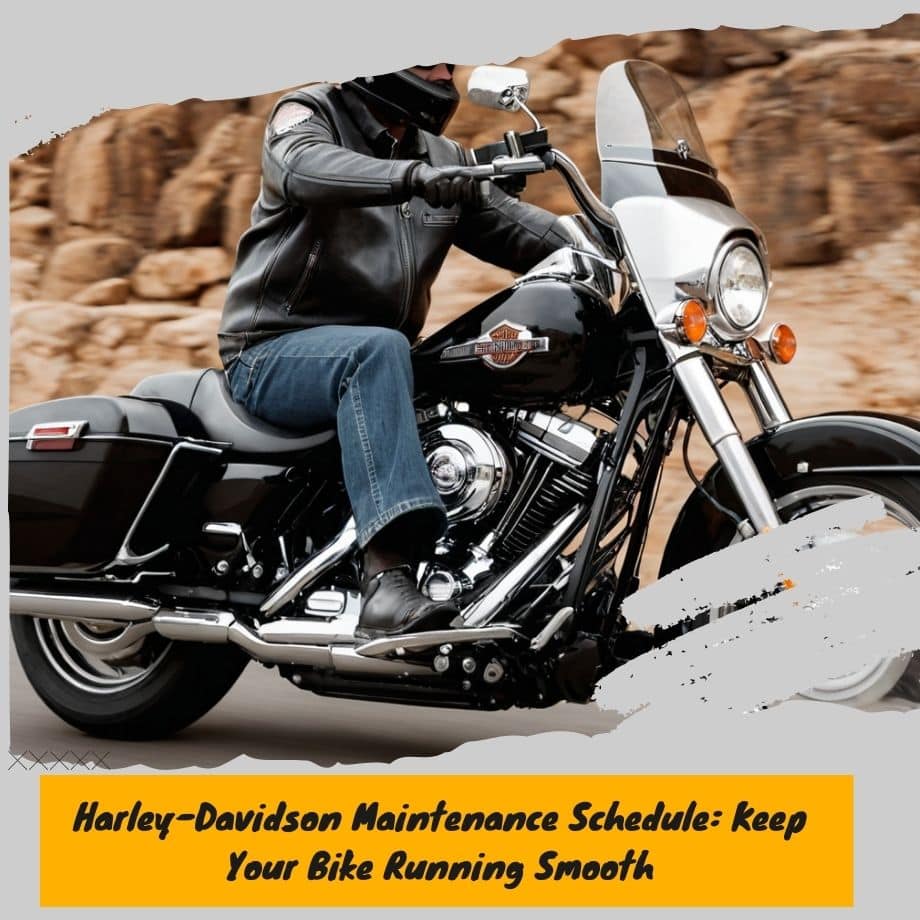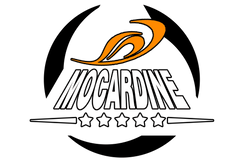The Ultimate Guide to Harley-Davidson Maintenance Schedule: Keeping Your Ride in Peak Condition

As a Harley enthusiast, you know that there's nothing quite like the rumble of a well-maintained Harley-Davidson engine. Whether you're cruising down the open highway or showing off your pride and joy at a local bike meet, keeping your Harley in top shape is crucial for both performance and longevity.
In this comprehensive guide, we'll dive into the Harley-Davidson maintenance schedule, providing you with all the information you need to keep your bike running smoothly for years to come.
Why Following a Maintenance Schedule Matters
Before we get into the nitty-gritty of the maintenance schedule, let's talk about why it's so important. Regular maintenance isn't just about keeping your bike looking pretty (although that's definitely a bonus). It's about:
- Ensuring optimal performance
- Extending the life of your motorcycle
- Maintaining safety on the road
- Preserving resale value
- Preventing costly repairs down the line
Now that we've established the importance of following a maintenance schedule, let's break it down into manageable chunks.
The Harley-Davidson Maintenance Schedule: A Breakdown
Harley-Davidson recommends different maintenance intervals based on the model of your bike and how frequently you ride. However, there are some general guidelines that apply to most Harley models. Let's look at the maintenance schedule in terms of miles ridden or time elapsed, whichever comes first.
Every 1,000 Miles or Every Month
At this interval, you should perform the following checks:
- Engine oil level
- Tire pressure and tread depth
- Operation of all electrical equipment and switches
- Clutch fluid level
- Brake fluid level
- Drive belt tension
These quick checks can be easily done at home and shouldn't take more than 15-20 minutes.
Every 5,000 Miles or Annually
This is where things start to get a bit more involved. At this interval, you should:
- Change engine oil and filter
- Lubricate clutch, brake, and throttle controls
- Check and adjust drive belt tension
- Inspect brake pads and rotors
- Check and adjust clutch free play
- Inspect air cleaner
- Check battery and clean connections
- Inspect fuel lines and fittings for leaks
- Check operation of all electrical equipment
Every 10,000 Miles
At this milestone, in addition to the 5,000-mile checks, you should:
- Replace spark plugs
- Replace air cleaner element
- Inspect and adjust valve clearance (if applicable)
- Change primary chaincase lubricant
- Change transmission lubricant
- Lubricate steering head bearings
- Inspect wheel bearings
Every 20,000 Miles
This is a major service interval. Along with all previous checks, you should:
- Replace fork oil
- Inspect and replace brake fluid
- Replace fuel filter
- Inspect and replace clutch fluid
- Check engine mounts
- Inspect swingarm pivot bearings
Model-Specific Considerations
While the above schedule provides a general guideline, it's important to note that different Harley-Davidson models may have specific maintenance requirements. For instance:
- Sportster models may require more frequent oil changes due to their smaller oil capacity.
- Touring models might need more frequent tire inspections due to the heavier loads they typically carry.
- CVO (Custom Vehicle Operations) models often have unique components that may require specialized maintenance.
Always refer to your owner's manual for model-specific maintenance schedules and requirements.
DIY vs. Professional Service
As a Harley enthusiast, you might be tempted to handle all maintenance tasks yourself. While this can be a great way to bond with your bike and save some money, it's important to know your limits.
Tasks You Can Usually Do Yourself
- Oil and filter changes
- Air filter replacement
- Tire pressure checks
- Battery maintenance
- Drive belt tension adjustments
- Basic lubrication tasks
Tasks Best Left to Professionals
- Valve adjustments
- Major electrical work
- Transmission service
- Fork oil replacement
- Engine rebuilds or major repairs
Remember, if you're not confident in your ability to perform a maintenance task, it's always better to leave it to the professionals. A mistake could lead to costly repairs or even compromise your safety on the road.
Tips for Maintaining Your Harley Between Scheduled Services
While following the maintenance schedule is crucial, there are things you can do between services to keep your Harley in top shape:
- Regular Cleaning: Keep your bike clean to prevent buildup of dirt and grime that can affect performance.
- Pre-Ride Inspections: Before each ride, do a quick check of your tires, lights, and fluid levels.
- Listen to Your Bike: Pay attention to any unusual sounds, vibrations, or changes in performance. These could be early indicators of issues.
- Store Properly: If you're not riding for extended periods, use a quality motorcycle cover and consider a battery tender.
- Use High-Quality Fluids and Parts: Don't skimp on oil, filters, or other consumables. Using Harley-Davidson recommended products can make a difference in performance and longevity.
- Keep a Maintenance Log: Track when you perform maintenance tasks. This can help you stay on schedule and can be valuable if you ever decide to sell your bike.
The Impact of Riding Conditions on Maintenance
Your maintenance needs can be affected by how and where you ride. Consider these factors:
- Frequent Short Trips: If you often take short rides, especially in cold weather, you may need to change your oil more frequently as it doesn't have a chance to fully warm up.
- Dusty or Dirty Environments: Riding in these conditions may require more frequent air filter changes and general cleaning.
- Extreme Temperatures: Very hot or cold climates can affect your bike's fluids and battery life.
- High-Speed Highway Riding: This can lead to faster tire wear and may require more frequent chain or belt adjustments.
Adjust your maintenance schedule accordingly if any of these apply to your riding habits.
Common Maintenance Mistakes to Avoid
Even experienced riders can sometimes fall into bad habits. Here are some common maintenance mistakes to watch out for:
- Neglecting the Battery: Batteries need regular attention, especially if your bike sits for long periods.
- Over-Tightening: Whether it's oil filters or bolts, over-tightening can lead to damage and leaks.
- Ignoring Warning Lights: Don't assume it's a faulty sensor - always investigate warning lights promptly.
- Using the Wrong Fluids: Make sure you're using the correct grade of oil and other fluids as specified in your owner's manual.
- Forgetting about the Tires: Tire pressure and tread depth are crucial for safety and performance.
- Skipping Scheduled Maintenance: It might be tempting to push off that service, but sticking to the schedule can prevent bigger issues down the road.
The Role of Technology in Motorcycle Maintenance
As technology advances, so does motorcycle maintenance. Many newer Harley-Davidson models come equipped with advanced diagnostic systems that can alert you to potential issues before they become major problems. Some even have smartphone apps that can help you track your maintenance schedule and provide reminders when service is due.
While these technological advancements are helpful, they're not a substitute for regular inspections and maintenance. Use them as tools to enhance your maintenance routine, not replace it entirely.
Environmental Considerations in Harley Maintenance
As riders, we have a responsibility to minimize our environmental impact. Here are some eco-friendly maintenance tips:
- Proper Disposal of Fluids: Always dispose of used oil, coolant, and other fluids at approved recycling centers.
- Use Environmentally Friendly Cleaning Products: Look for biodegradable degreasers and cleaning solutions.
- Maintain Optimal Performance: A well-maintained bike runs more efficiently, reducing emissions.
- Consider Synthetic Oils: They often last longer and can reduce oil consumption.
- Recycle Parts: Many parts of your Harley, including the battery, can be recycled when they reach the end of their life.
Conclusion: The Joy of a Well-Maintained Harley
Following your Harley-Davidson's maintenance schedule isn't just about keeping your bike running; it's about preserving the joy and freedom that comes with riding. A well-maintained Harley is a reliable companion for all your adventures, whether you're commuting to work or embarking on a cross-country tour.
Remember, every minute you spend on maintenance is an investment in your bike's performance, longevity, and your own safety. It's also a chance to connect with your Harley on a deeper level, understanding its quirks and needs.
So, fire up that engine, hit the open road, and ride with confidence knowing that your Harley is in peak condition. After all, there's nothing quite like the peace of mind that comes from a perfectly tuned machine rumbling beneath you as you chase the horizon.
Keep riding, keep maintaining, and keep living the Harley dream!







Leave a comment